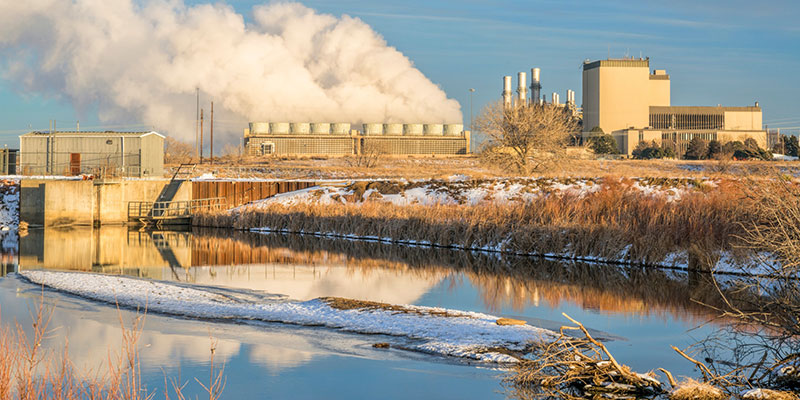One opportunity for the use of recycled industrial wastewater is for cooling at electrical generation plants.
New solutions and opportunities are helping overcome challenges in the sector
The industrial sector is the fourth largest water user in the United States. Most of the water used is withdrawn from surface waters and groundwater. As the sector begins to feel the impact of increasing water shortages, the time has come to implement strategies to reduce water consumption and improve water security. One emerging strategy for reducing demand on freshwater resources is recycling wastewater for reuse.
Treating industrial wastewater offers great potential as an alternative source of water for reuse within industry, and while there are some challenges that must be addressed, there are solutions and opportunities for its expansion.
Some industrial processes produce complex wastewater streams that can be extremely challenging to treat. It’s not unusual for a single stream of wastewater effluent to contain high biological and chemical oxygen demand (BOD and COD), total suspended solids (TSS), nutrients such as nitrogen and phosphorus, fats and oils, corrosive or toxic chemicals, heavy metals or other hard-to-treat contaminants. Each may require specialized treatment.
These pollutants in effluent discharges can pose an environmental risk, especially to surface waters and groundwater systems, which may need to be remediated. That’s why water must comply with environmental regulatory standards before being discharged.
Innovative Wastewater Treatment Technologies
Innovative water treatment technologies are presenting opportunities for a wide range of industries.
According to a study, “Opportunities and Challenges for Industrial Water Treatment and Reuse,” recently published in ACS EST Engg, there is a significant opportunity to reuse of the vast amount of water used in industrial boilers and cooling systems.
Common challenges include issues related to scaling, fouling, and corrosion. Technologies capable of removing these pollutants efficiently are crucial if we wish to maximize water recycling and reuse opportunities across the sector.
Modular Treatment Solutions
The study goes on to say that modular treatment technologies are particularly important if wastewater reuse technologies are to be adopted in a widespread way, particularly among smaller businesses. Modular solutions can be easily integrated into various industrial wastewater treatment processes as needed.
Some wastewater treatment processes may require a pretreatment stage to remove undesirable pollutants such as suspended solids, as well as a post-treatment stage. Modular treatment solutions can be designed to address the specific water treatment challenges industries face.
According to the study, modular treatment systems that can be monitored and controlled autonomously in real-time allow for efficient and inexpensive optimization of water quality. Smart systems such as these can help industries prepare for long-term changes such as deterioration in water quality, depletion of source water resources, and climate change.
Fluence has years of experience developing efficient, cost-effective wastewater reuse solutions, including compact, modular plug-and-play systems that can be tailored to meet the specific needs of various industries.
Fluence’s water and wastewater treatment systems are equipped with technology for real-time autonomous remote monitoring and control using our innovative Smart Operations suite.
By reusing the wastewater it generates, the industrial sector can not only improve their water security, but also play a crucial role in improving water security across the world. Contact Fluence to find out how you can be part of the solution.

